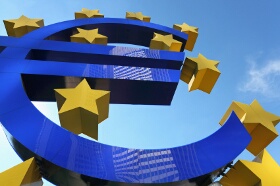The past trading week was rather quiet due to Thanksgiving in the United States. With little going on in the USA, markets’ attention turned to Europe. Germany was in the spotlight due to its political issues, which sent the euro down during the week, though the currency recovered by the weekend.
The week started poorly for the shared 19-nation currency as news came out about failed negotiations for coalition between the Christian Democratic Union led by German Chancellor Angela Merkel with the pro-business Free Democratic Party and the Greens. It looked like the Chancellor will have troubles forming a new government. Yet Martin Schulz, the leader of Germanyâs Social Democratic party, who was against an alliance of his party with Merkel’s CDU, had change of mind after talking with Frank-Walter Steinmeier, German President and former SDP leader. Now, Schultz will not object a coalition. Such news lifted the euro.
The currency also got support from positive macroeconomic data by the end of the week. First, PMI reports from Markit IHS came out above expectations. Next, the German Ifo business climate survey showed good results, which were better than expectations as well.
EUR/USD opened at 1.1785, fell to 1.1712 during the week, but bounced to end trading at 1.1928. EUR/GBP ended the week at 0.8941 after opening at 0.8914 and falling to the low of 0.8841. EUR/JPY rose from 132.17 to 133.10, bouncing from the weekly low of 131.16.
If you have any questions, comments or opinions regarding the Euro,
feel free to post them using the commentary form below.
